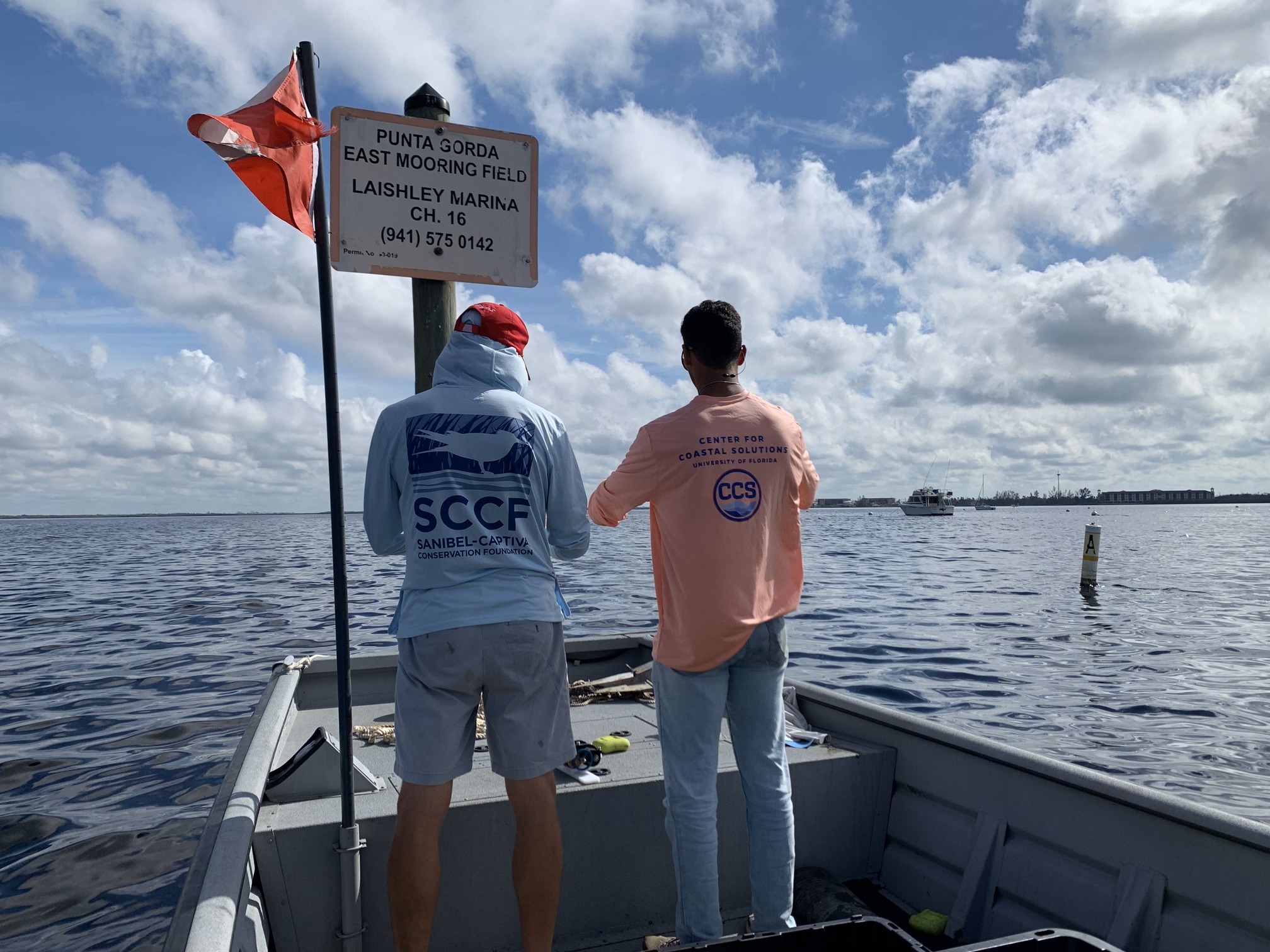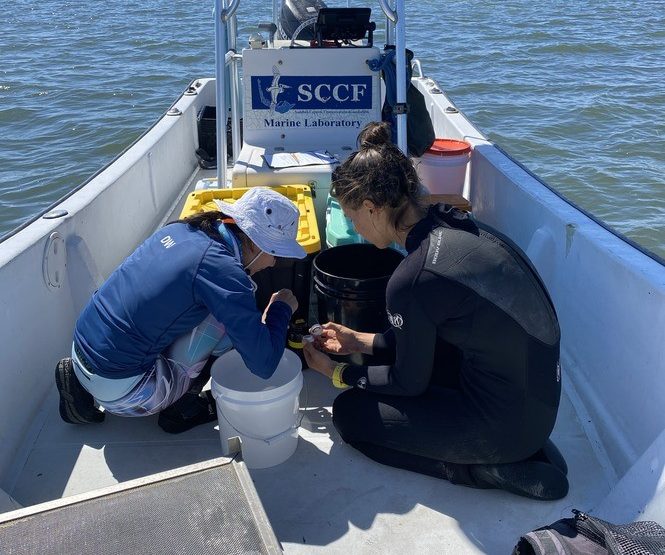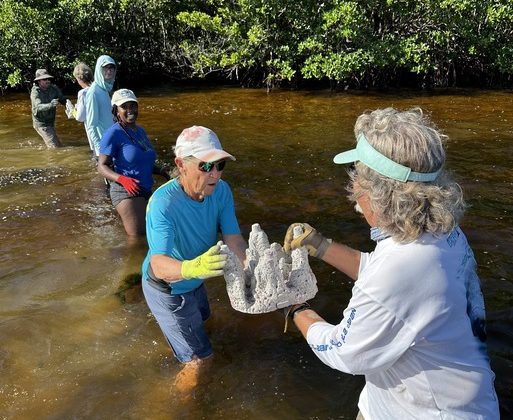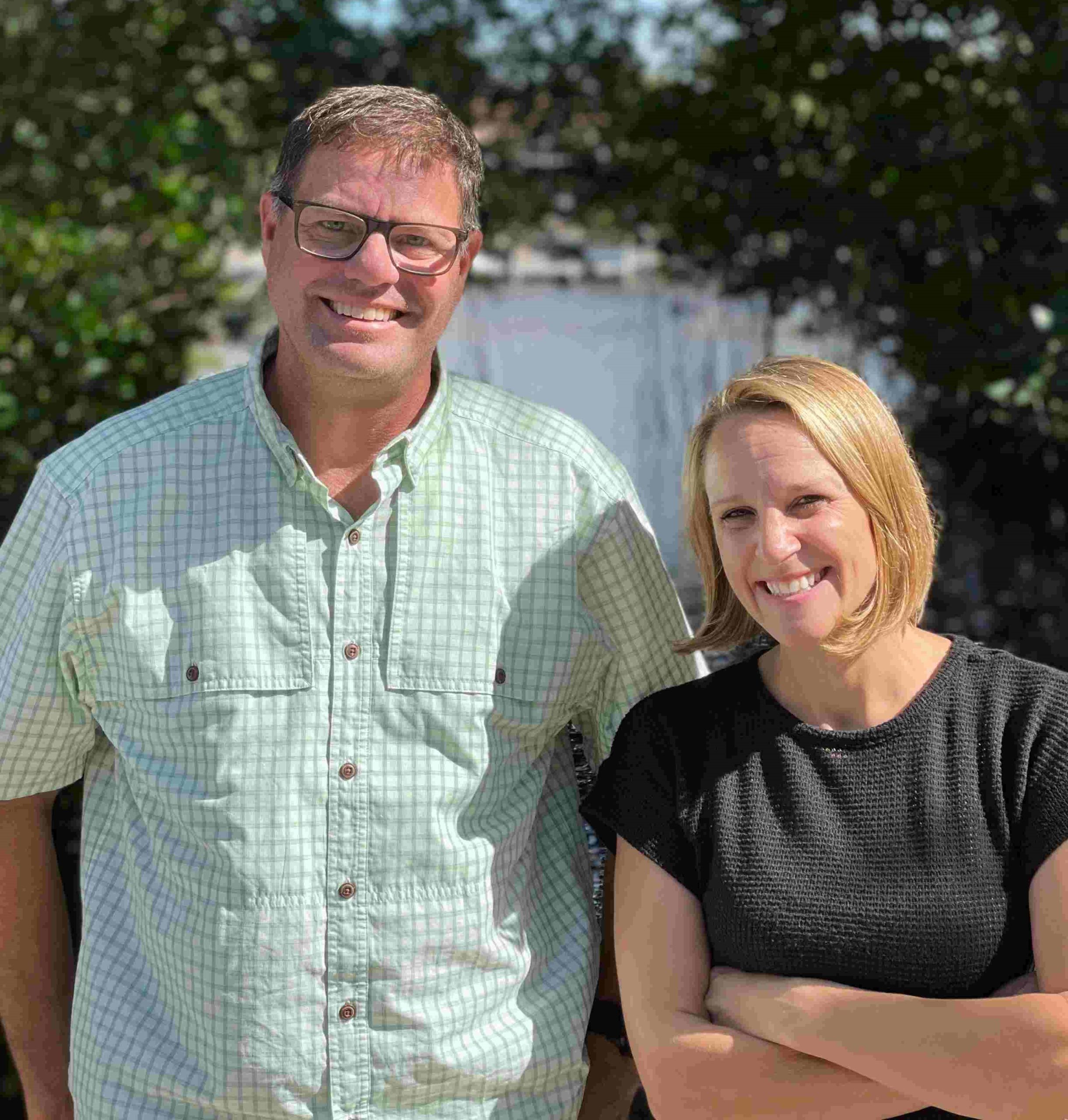The preservation of our coastlines, vital to both local ecosystems and human communities, demands a unified effort across many fields of expertise and organizations. For researchers, finding the right partners to support and collaborate on these efforts can make or break the success of critical scientific endeavors. For the Center for Coastal Solutions (CCS), the Sanibel-Captiva Conservation Foundation (SCCF) has been that indispensable partner since 2020.

“SCCF has been a cornerstone of our research into harmful algal blooms and water quality in Florida’s estuaries and lakes,” said David Kaplan, CCS associate director and UF professor of environmental engineering. “The deep collaboration between SCCF’s staff and my team has resulted in more rigorous, applicable science. Through their on-the-ground support—data collection, real-time observations and logistical assistance—we have been able to refine models and develop actionable management strategies for key bodies of water such as Lake Okeechobee, the Caloosahatchee River, and the St. Lucie Estuary.”
The experience of working with SCCF goes beyond mere resource sharing. “Collaborating with their marine lab staff was always a pleasure, not just because of their knowledge but because of their dedication to conservation,” said Elise Morrison, assistant professor in UF’s Department of Environmental Engineering Sciences. “Whether it was providing real-time sensor data or responding to crises like Hurricane Ian, SCCF consistently demonstrated a level of commitment that is rare.”
During the hurricane, for example, their RECON sensors captured real-time environmental conditions, helping Morrison’s team understand the storm’s impact on the ecosystem even as they worked tirelessly to restore their facilities. “This type of dedication is emblematic of SCCF’s broader mission and highlights why strong, enduring partnerships like these are so critical to advancing coastal preservation research.”

Support for Student Success
These strong collaborations have extended to graduate students and postdocs affiliated with the Center for Coastal Solutions. “During my NSF Postdoctoral Research Fellowship in Biology, SCCF was indispensable,” said Diana Chin, PhD, associate research scientist at Northeastern University and Metro Boston regional coordinator for the MassBays National Estuary Partnership. Their staff provided Chin with essential resources, such as boat use, field support and lab space, that enabled her to gather crucial samples of lucinid clams, seagrass and environmental data—work that comprised nearly half of her research project.
“Without SCCF’s generous contributions, including the expertise of Dr. Eric Milbrandt, locating key clam populations in Pine Island Sound would have been far more challenging,” said Chin, a former postdoctoral student in the lab of CCS Associate Director Andrew Altieri, Ph.D. “Moreover, SCCF’s water quality data is helping to contextualize my findings, significantly enhancing the broader impact of the research.”

As a graduate student, Adrian Sakr has had the opportunity to work closely with SCCF on multiple projects, from evaluating the East End canal systems to experimenting with oyster gardens and seagrass restoration. These efforts would have faced an uphill battle without SCCF’s extensive support, from boat access and volunteer recruitment to scientific expertise and data sharing.
“The organization’s commitment to fostering relationships with researchers, local homeowners and policymakers alike has added a crucial applied dimension to my work,” said Sakr. “Through SCCF, my research has not only expanded my academic understanding but also had a tangible impact on local communities and ecosystems.”
SCCF has also been an invaluable collaborator for graduate student Patrick Saldaña, PhD, especially when the pandemic disrupted his international research plans. They provided field and lab resources, along with affordable housing for his extended trips. SCCF Marine Laboratory Director Eric Milbrandt, Ph.D., personally trained him in the seaweed ecology of southwest Florida, helping to identify key survey and experiment sites.
Reflecting on his experience, Saldaña shared, “My time at SCCF expanded my skillset, introduced me to new ecosystems and methods, and deepened my understanding of human impacts on coastal environments. The SCCF team is a joy to work with, conducting and supporting research that benefits Florida’s ecosystems and economy.”
This partnership has been equally valuable for many other members of the CCS team. “SCCF has been a crucial partner in our success,” said CCS Associate Director Andrew Altieri, Ph.D. “The insights from SCCF leadership have helped launch multiple student projects and build local connections, maximizing the impact of our work. They’ve provided a ‘home away from home,’ offering logistical support that has been essential for sustaining our field operations in this region of Florida.”
SCCF “Punches Above its Weight” in Science, Policy and Public Engagement

One of the most rewarding aspects of the CCS’ collaboration with SCCF has been their ability to merge science with policy and community engagement. For instance, SCCF hired CCS’s first policy fellow Matt DePaolis as environmental policy director and established an ongoing partnership with the University of Florida through the Pfeifer Fellowship, resulting in innovative projects like the “Sea Change: The Legacy & Future of Sanibel Island” exhibit on the history and future of Sanibel’s ecological zones. This exhibit, created in collaboration with UF’s Landscape Architecture department, highlights SCCF’s holistic approach to conservation—one that embraces both scientific research and public engagement.
“In the end, SCCF stands out as an organization that consistently punches above its weight in both science and policy,” said Tom Ankerson, professor emeritus, UF Levin College of Law. “Their dedication to providing a living laboratory for cutting-edge research and their willingness to work closely with institutions like the University of Florida exemplifies the power of collaboration.”
Collaborating with SCCF has not only advanced CCS’ research—it has made it more meaningful, relevant and impactful. Their partnership and ongoing support continue to shape the future of coastal preservation in ways that benefit both ecosystems and the communities that depend on them.
“Their role in fostering a strong network of researchers, policymakers, and conservationists underscores the importance of long-term partnerships in addressing the complex challenges facing our coasts today,” said Kaplan.
Partnerships play a key role in CCS’ efforts to create a resilient future for our coasts. The CCS is committed to building multi-faceted, enduring partnerships with all of its collaborators for lasting, real-world impact. Learn more about how to partner with us at our website.
—
By Sharon Ryan
